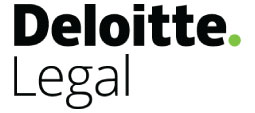The EU Directives on Work-life balance and on Transparent and predictable working conditions were introduced into the Lithuanian national legislation in August 2022 with the remainder following on 01 January 2023 and brought about significant changes and obligations for the employers. What do they mean for businesses?
This report is designed to help companies to understand the requirements and how they have been implemented.
Implementation of EU Directive on Work-Life Balance (EU Directive 2019/1158)
Has the directive been implemented in the jurisdiction?
Yes.
What is the status of the implementation or draft implementation?
Some changes to the Labour Code of the Republic of Lithuania came into force on 01 August 2022, with the remainder following on 01 January 2023.
Amendments to the Law on Sickness and Maternity Social Insurance came into force on 01 January 2023.
What are the key changes for employers and employees?
- Paternity leave
- Now, the 30-calendar day period of paternity leave can be split into 2 parts of 15 calendar days or used non-interruptedly until the child reaches 12 months of age.
- Paternity leave benefit is set at 77.58% of
compensatory earnings.
- Childcare leave
- Each parent is eligible for 2 months of childcare leave until the child is 18 or 24 months old; this leave cannot be transferred to another person.
- The balance of the childcare leave period may be used by either parent, grandparents, or other relatives
(as chosen). - The 2 non-transferable months can be used all at once or split into parts.
- Both parents may not be simultaneously on
childcare leave. - In a case where a parent decides not to use his/her share of non-transferable leave, the total period of childcare leave is decreased accordingly.
- Unpaid leave
- An employee is entitled to unpaid leave for a period recommended by a healthcare institution when taking care of a sick member of the family or household.
- The employer must grant time off if the employee's request is related to a family emergency in the event of sickness or accident in which the employee is required to be directly present.
- Flexible working arrangements
- An employee who is caring for a family member or person living with him/her, is raising a child of up to 8 years old or is a single parent to a child of up to 14 years old, will receive more flexibility to work under part-time arrangements. (They are exempt from any requirement related to length of employment.)
- An employer must agree to allow an employee to work remotely who is raising a child of under 8 years of age or who is caring for a family member or a person living with him/her. There is an exception when the employer can prove that remote working would not be cost effective due to the specific nature of the work involved.
- Employees are entitled to choose a preferred working schedule if they:
- Are pregnant;
- Have recently given birth or are breastfeeding;
- Are raising a child of under 8 years;
- Are a single parent to a child of under 14 years;
- Are caring for a family member or
household member.
The above rules apply unless the employer can prove that such a regime would not be cost effective due to the specific nature of the work involved.
- Discrimination
Any discrimination based on nationality, religious beliefs, state of health, marital and family status is prohibited in all cases (hiring, termination of employment, etc.).
What are the main actions for HR departments in preparing for the changes?
- Review internal documents (policies, regulations) relating to the abovementioned areas, and update them accordingly in any cases of non-compliance.
Implementation of EU Directive on Transparent and Predictable Working Conditions (EU Directive 2019/1152)
Has the directive been implemented in the jurisdiction?
Yes.
What is the status of the implementation or draft implementation?
Part of the amendments relating to the Labour Code of the Republic of Lithuania came in force on 01 August 2022. The remainder came into force on 01 January 2023.
What are the key changes for employers and employees?
- Providing information
Before the employee starts work, the employer must provide the employee with information on the:
- Probationary period (if applicable);
- Procedure on termination of the employment contract;
- Payment system for overtime;
- Right to training (if the employer provides it);
- Rights relating to social security benefits from social security institutions in connection with the employment.
- Secondments
Before sending the employee on a secondment for a period of more than 28 days, the employer must provide the employee with the following information:
- The country and duration of the secondment;
- The currency in which remuneration will be paid;
- Any allowances to be granted during the posting,
if applicable; - Any conditions relating to the return to the
permanent employer.
In a case where the employee is posted to another EU member state, the following information must also be provided:
- The remuneration to which the employee is entitled according to the local laws of the host country;
- Any daily allowances granted during the posting,
if applicable; - A link to the official website of the host country, which provides information on posted workers.
- Probationary period
A probationary period cannot exceed 3 months. If a fixed-term employment contract for 6 months or less is signed, then the probationary period must be reduced proportionately (i.e. to be less than 3 months).
What are the main actions for HR departments preparing for the changes?
Review internal documents (policies, regulations, templates of onboarding documentation etc.) relating to the areas mentioned above and update any cases of incompliance accordingly.
By Laura Rackauskine, Managing Associate, and Beatrice Zubyte, Assistant Lawyer, Deloitte Legal Lithuania
This communication contains general information only, and none of Deloitte Touche Tohmatsu Limited (“DTTL”), its global network of member firms or their related entities (collectively, the “Deloitte organization”) is, by means of this communication, rendering professional advice or services. Before making any decision or taking any action that may affect your finances or your business, you should consult a qualified professional adviser. No representations, warranties or undertakings (express or implied) are given as to the accuracy or completeness of the information in this communication, and none of DTTL, its member firms, related entities, employees or agents shall be liable or responsible for any loss or damage whatsoever arising directly or indirectly in connection with any person relying on this communication. DTTL and each of its member firms, and their related entities, are legally separate and independent entities.


